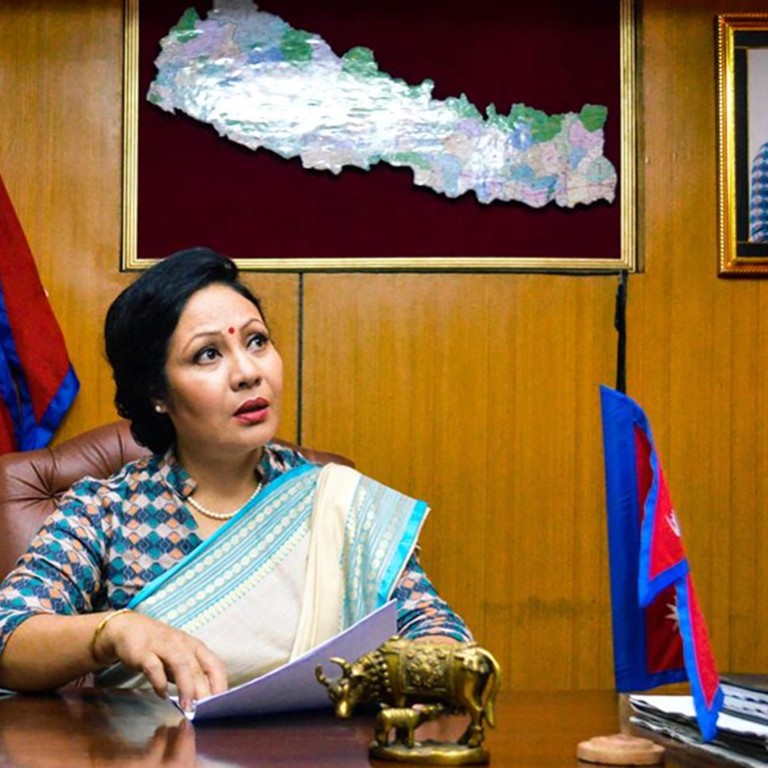
TV drama features Nepal's first female PM but it is far from becoming reality
With many discriminatory clauses towards women, including vague provision that thwarts passing citizenship through mothers, rights activists fear the new constitution could discredit Nepal's commitment towards gender equality.
Nepal is set to see its first woman prime minister - if not in reality, then at least on television.
, a political drama named after the official seat of the Government of Nepal, strives to introduce thousands of Nepalis to a woman as the protagonist who also holds the most powerful position in the country.
"We want to give a message that this is possible," said Yubakar Rajkarnikar, director of programmes at the non-profit organisation, Search for Common Ground Nepal, which produces the series. "Hopefully we will inspire a woman prime minister in Singha Durbar in future."
It carried out a survey in the capital, Kathmandu, showing 62 per cent of respondents believe Nepali society is ready to accept a woman prime minister.
Yet many leaders do not predict any immediate change.
While the Himalayan nation was proud of its growing band of women in politics - 33 per cent of representatives in the Constituent Assembly, the legislature, are women - most executive privileges were still entrusted to men, said Pushpa Bhusal of the Nepali Congress party. She said political representation did not equate to political empowerment.
"Women are still excluded from major decisions and policymaking duties," said Bhusal, a former parliamentarian whose career spans more three decades. "This means they're still questioning our leadership."
As the country is reaching a consensus to promote its new constitution, leaders like Bhusal are worried about women's underrepresentation and lack of leadership in the essential organs of the Constituent Assembly. For example, only 15 of the 73 members of the Constitution Drafting Committee are women.
With many discriminatory clauses towards women, including vague provision that thwarts passing citizenship through mothers, rights activists fear the new constitution could discredit Nepal's commitment towards gender equality.
There has been little progress despite sharp dissent among women lawmakers.
"Our women leaders are raising their voices, but not being heard," said Jaya Luintel, a journalist and women's advocate, who is documenting gender issues in politics in a multimedia project, The Story Kitchen.
"People who need to listen are not listening - and they are all men."
She said the draft constitution reflected patriarchal attitudes entrenched in Nepali society.
Such a culture of power play within the party was a huge challenge for most women leaders, said Maoist leader Jayapuri Gharti, who fought during the "People's War" - an armed conflict between the government and Maoist rebels that ended in 2006 - became a parliamentarian and later served as a minister.
She said there was a constant struggle to break the glass ceiling - to prove a woman's worth.
"Though the party wants women to move forward, they don't give them more responsibilities, or trust their capabilities compared with men. They fear women will become more powerful. It's frustrating."
Yet Bhusal believes men's control of Nepali politics will end sooner or later. She said women politicians should become more aggressive to secure prominent positions, which could be a defining moment in Nepal's politics.
"None of the mainstream political parties has had a woman president," she said.
"So let's start from there. Then one day Nepal will have a woman prime minister, too."

